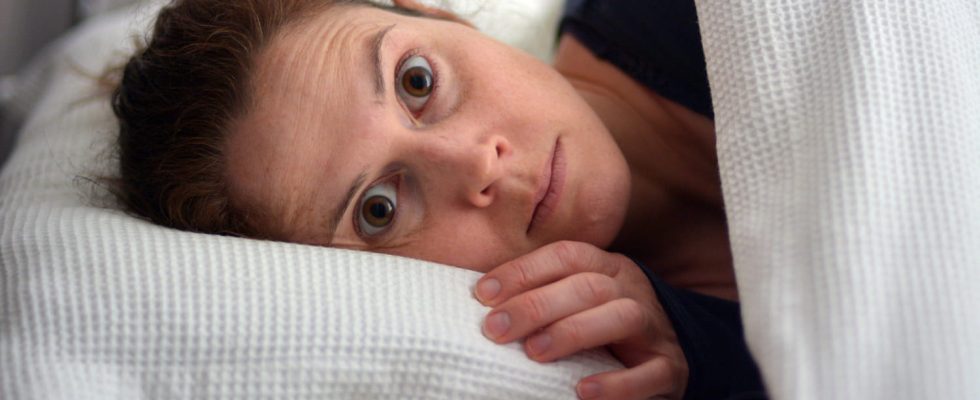Putting off going to sleep as long as possible has a name: “sleep procrastination”. A bad habit which often reflects great frustration.
It’s recurring: you’re getting tired but you prefer to struggle and scroll for a few extra minutes on your smartphone without any real purpose or watch an episode of a series on Netflix? You are doing what we call “sleep procrastination” or “sleep procrastination”revenge bedtime procrastination” in English. This habit, first described in 2014 by scientists from Utrecht University in the Netherlands in Frontiers in psychologyconsists of postpone the moment to go to bed as late as possible while finding futile and unproductive occupations. According to them, you suffer from this “syndrome” if you meet these three criteria:
- You intentionally delay going to bed
- You have no valid reason to stay up later than expected
- You are fully aware that this behavior cuts into your sleep time and contributes to your state of fatigue.
“Avenge yourself for your day’s work”
This behavior which can be summarized by “lazy to go to sleep” is not trivial and generally reflects great frustration, insists Carla Valette, medical intern, to the 2.7 million subscribers on TikTok. “After a long day of work, you have very little free time left and that can be extremely frustrating. So what you do is you stay up as late as possible doing something you love, all to take revenge for your day’s work who took up all your time“, she explains. It makes you feel like you can expand your free time and regain control over your day. Furthermore, this behavior would be favored by the anxiety of tomorrow. “Going to sleep means that the day is well and truly over and sometimes we don’t go to bed to delay until tomorrow“, she continues. Are more at risk : women and students, people who suffer from great stress at work, those who have a very busy pace of life, filled with obligations which do not really bring pleasure or even those who are already subject to stress. procrastination during their day or who are “evening people” (“night owls” as they are called).
5 solutions to combat sleep procrastination
Be careful because in the long term, this behavior is harmful because it delays falling asleep and leads to a significant lack of sleep, itself linked to problems with concentration and memory, but also to more serious health consequences such as obesity, hypertension and cardiovascular diseases. To get outthere American Sleep Foundation recommends:
→ Keep a consistent bedtime and wake-up time, including days when you are not working.
→ Avoid alcohol or caffeine late in the afternoon or evening
→ Stop using electronic devices, including cell phones and tablets, for at least half an hourand ideally longer, before bed
→ Develop a stable routine each evening to prepare for bed: for example, read a book, meditate, stretch.
→ Create an inviting, dark and quiet bedroom environment with a comfortable mattress and bedding
Remember that it will be necessary more than one night’s sleep to truly adopt good sleep habits.
